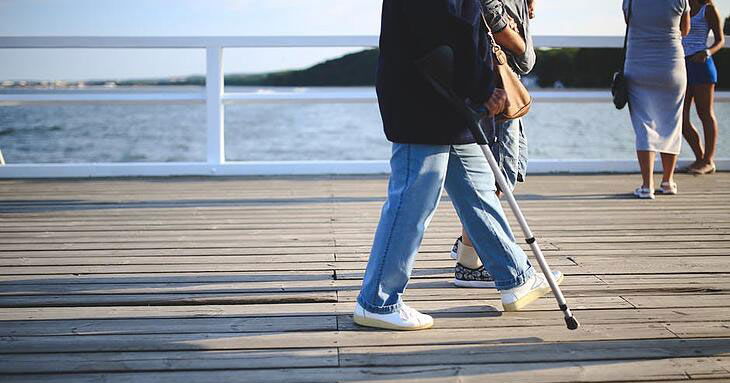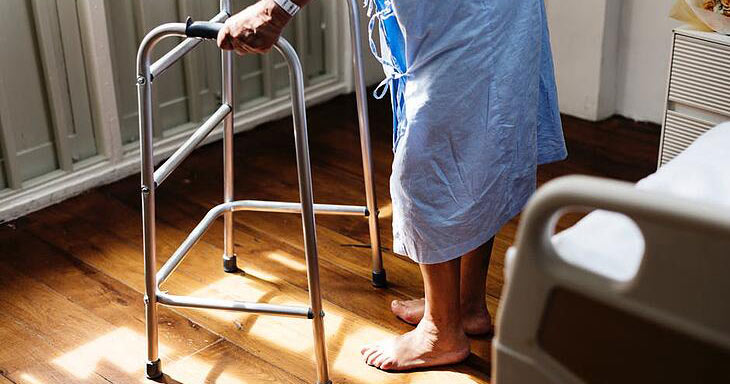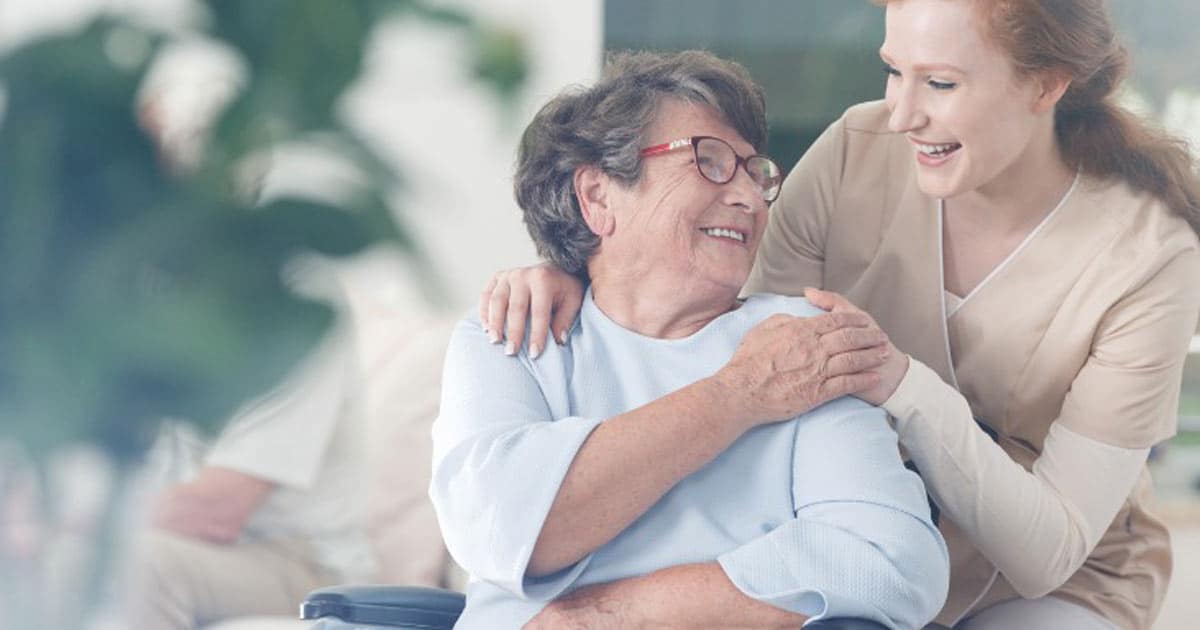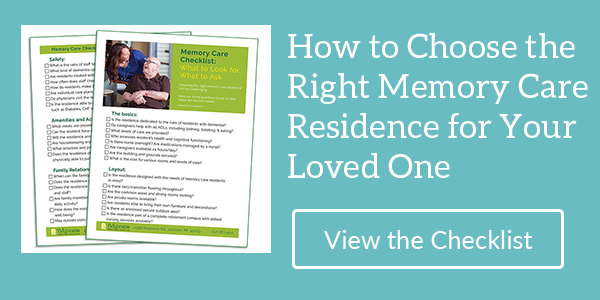Deciding to move your aging loved one to an assisted living facility or nursing home is never easy. But often, it’s the best (and sometimes only) way to keep them safe, healthy and in your life for the long-term.
How do you know when that time has come? Pay close attention to your loved one’s health, their living situation and their demeanor. If you spot any of these signs, it’s likely time to start considering additional care:

Accidents
Have they fallen a lot lately? Injured themselves or slipped on the sidewalk? Do they have lots of bruises, nicks and scrapes? This indicates their physical health is deteriorating quickly. If they live in a two-story home or somewhere with ice or rain, this could result in seriously dangerous conditions that threaten their health or even life. Take steps to outfit their home with the appropriate railings, ramps and safety gear until you can get them situated in the right assisted living facility.
Poor hygiene
Does your loved one smell? Is their hair greasy and disheveled? Are they wearing the same clothes as yesterday or last week? They’re likely having trouble keeping themselves clean or, what’s worse, they might be forgetting about hygiene altogether. Talk to them about your concerns and remind them about proper hygiene and cleanliness. If the next time you visit, things haven’t changed, it’s time to get them an in-home care provider or into assisted living.

Declining weight, rotting food and other signs of eating issues
Aging adults often “forget” to eat when their cognitive abilities start to decline. Watch your loved one for signs that this is happening; are they losing weight? Are their clothes fitting loosely? Is their fridge full of rotting food or empty altogether? Not only does this indicate their mind is failing (and likely in other areas of their life as well), the lack of nutrients could be impacting their physical health, too. Getting them the professional care they need is vital – and urgent.
Aggression or mood changes
Any changes to personality, mood or demeanor should be considered a serious concern. These can be a sign that dementia or Alzheimer’s is setting in and that your loved one needs professional assistance dealing with the changes. Be mindful of your loved one’s attitude each time you visit; if something seems amiss, take it seriously and consider assisted living or in-home care ASAP.

Problems with bills and finances
Are there unpaid bills littering the table or floor? Are their notices on their front door and pink slips in their mailbox? Are they being threatened with foreclosure? These can all be signs that your loved one’s cognitive abilities are changing. Get their bills in order and settled up, and start looking for assisted living help as soon as you can. Unpaid bills could result in shut-offs to their electricity and utilities – both of which would pose a health hazard to your loved one.
No social life
Has your love done lost their zest for life? Did they stop going to church, book club or bunco? Do they spend most of their time alone and indoors? Isolation can have a serious impact on a person’s mental and physical health. At the very least, you should consider a senior living community or in-home care provider that can offer some level of companionship. If your loved one has additional medical or health care needs, an assisted living facility may be the best bet.

Hospitalizations and worsening health conditions
If your loved one was recently hospitalized, had surgery or has worsening or recurring health issues, then leaving them on their own is no longer an option. You can only have so many close calls, and you’ll want someone by their side next time something goes wrong. Equip your loved one with an emergency alert bracelet and look into in-home care or assisted living facilities. Get help before it’s too late to do so.
Damage to their car
Is your loved one still driving? If so, take a close-up look at their vehicle. Are there any new nicks, dents or scratches? If so, they might be driving carelessly, or their eyesight could be declining. Next time you stop by, ask them to take you for a drive. Watch to make sure they’re buckling their seatbelt, properly operating the gears and pedals, and staying steady in their lane. If they show any signs of driving dangerously, it’s time to take the keys away. Hire an in-home caregiver to provide them transport as needed, or look into assisted living.
 Caregiver fatigue or anger
Caregiver fatigue or anger
The best caretaker is a calm, well-rested and happy one, so pay close attention to whoever is caring for your loved one. Are they showing signs of frustration or aggression? Are they tired and working more hours than they used to? Are they running out of patience or money? If your caretaker is no longer up to the task – or the job is weighing on them too heavily, you might want to look for other options.
Concern from friends or doctors
Are neighbors complaining about the smell coming from your loved one’s house? Are their friends calling you wondering why they haven’t shown up to the community center in weeks? Does their doctor think they’re depressed or in a dangerous state of mind? Take these concerns seriously, talk to your loved one and act immediately. If someone has noticed a change, chances are it’s been brewing for some time – you’ll want to act quickly before the issue worsens.
Need Assisted Living for Your Loved One?
If you think your loved one may be in need of an assisted living facility, stop by Ganton’s Countryside today. Our experienced professionals can help you evaluate your family member’s health and well-being, and assist you in finding the right care situation for their needs. Whether that’s assisted living, independent living or simply in-home care, we offer a variety of options that can ensure your loved one’s health and happiness for the long-term.
For information about Countryside, please call Margaret Nagel at (517) 206-5000 or download our brochure to learn about our care levels, cost, and amenities.


